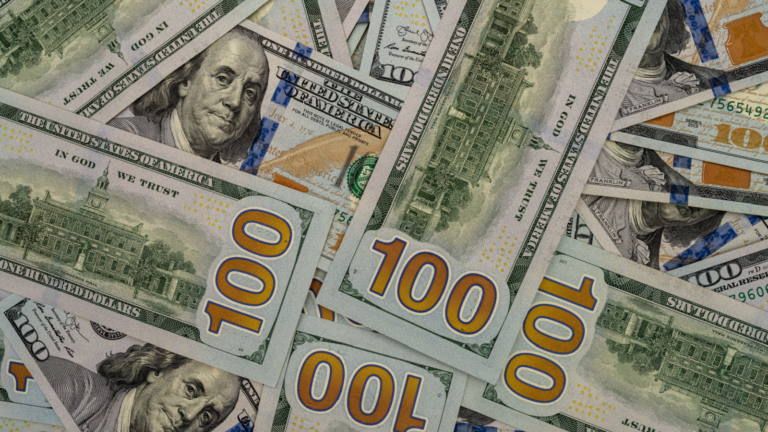
Source: Serhii Milekhin / Shutterstock.com
Editorial Note: InvestorPlace Beacon independently determines what we cover and recommend. We earn a commission from affiliate partners on many offers and links. However, these commissions do not affect our editors' opinions or evaluations. Click here to read our full advertiser disclosure.
After paying close to nothing on cash for years, certificates of deposit (CDs) are now an attractive place to park your savings. With the Federal Reserve implementing interest rate hikes at a pace not seen since the 1980s, many CDs are offering rates of 5% and more.
Should you take the plunge and lock in that CD rate, or is it better to wait? Now may be the time to take action.
What Is a Certificate of Deposit (CD)?
A certificate of deposit is a type of deposit account that pays interest at a fixed rate for a predetermined amount of time. The term length of CDs are typically between three months and five years, and savers typically have to deposit a minimum amount of money to open the account, such as $500.
CDs offer a safe place to park your funds without having to worry about a variable interest rate that could drop, like you might see with a high-yield savings account. The rate on a traditional CD will always stay the same so you know exactly how much you will earn.
CDs are also federally insured like traditional checking and savings accounts. Funds are protected up to $250,000 per depositor, per account, by the Federal Deposit Insurance Corporation (FDIC) for banks and the National Credit Union Administration (NCUA) for credit unions.
However, there are penalty fees if you access your funds before the CD’s maturity date. This is why they are a popular choice when storing savings with a specific end date in mind, such as the down payment for a house. But CDs don’t offer the same earning potential as the financial markets, so financial advisors tend to recommend investing for your long-term goals instead of using savings accounts like CDs.
What Are the Benefits of a CD?
CDs are a safe, low-risk place to keep your money and typically carry significantly higher interest rates than traditional checking or savings accounts, and slightly higher rates than high-yield savings accounts.
Because they have fixed interest rates, you don’t have to worry about sudden decreases to your CD interest rate and how much you’re earning on your cash. If you open a CD when rates are high, you lock in that high rate — even if interest rates plummet during your CD’s term length.
One strategy is to ladder your CDs, which involves opening multiple CDs with different term lengths. This allows you to access some of your money sooner while the rest of your funds continue to accumulate interest. You can then choose to reinvest your money into a new CD at a new rate.
The Current State of CDs
CD rates generally rise or fall based on the federal funds rate set by the Federal Reserve.
The federal funds rate has seen repeated increases over the last several years as the Fed works to combat high inflation. There have been more than 10 increases since 2022, although rates have held fairly steady since late 2023.
With recent increases to the federal funds rate, short-term CD rates have risen in response. Banks and credit unions have followed in the footsteps of the Fed, increasing rates and suddenly making vehicles like CDs all the more attractive.
While it’s currently a good time to open a CD, that could soon be coming to an end. The Fed is expected to lower rates later this year (although there’s no certainty rate cuts will happen). A study of the CME Group’s FedWatch Tool shows the likelihood of rate cuts steadily increasing with each month as we progress through 2024.
When the Fed eventually cuts interest rates, banks are likely to do the same. That means now may be the the time to act if you want to lock in current CD rates.
Alternatives to a CD
If you are looking for an alternative to a traditional CD, you may want to consider:
- High-yield savings account: A high-yield savings account gives you access to short-term cash holdings while earning more interest than you would with a traditional savings account. However, a high-yield savings account does not have a fixed interest rate like CDs, so the interest you earn will vary based on changing rates. It has been a very attractive option this year, given high interest rates.
- Money market accounts (MMAs): Money market accounts come with many of the benefits of checking accounts — such as check-writing abilities and debit cards — with the earning potential of savings accounts. Like CDs and high-yield savings accounts, MMAs have become an attractive place to store cash in recent years.
Is a CD Worth It?
A CD can be a great place to store savings you will not need to access for a set period of time, but that you can earn a fixed interest rate on. The accounts are federally insured and carry a higher interest rate than your average savings account.
However, after steady increases to the federal funds rate, interest rates have likely peaked. With decreases expected in late 2024 or 2025, now may be the time to open a CD and lock in high rates before it’s too late.
Sources
Federal Deposit Insurance Corporation. (2024, April 22). National Rates and Rate Caps. Retrieved from https://www.fdic.gov/resources/bankers/national-rates/index.html.
Federal Deposit Insurance Corporation. (2024, April 22). Deposit Insurance FAQs. Retrieved from https://www.fdic.gov/resources/deposit-insurance/faq/index.html.
Board of Governors of the Federal Reserve System. (2024, April 22). Open Market Operations. Retrieved from https://www.federalreserve.gov/monetarypolicy/openmarket.htm.
CME Group. (2024, April 22). CME FedWatch Tool. Retrieved from https://www.cmegroup.com/markets/interest-rates/cme-fedwatch-tool.html?ftag=MSFd61514f.
American Bankers Association. (2024, April 22). Economic Advisory Committee Forecast March 2024. Retrieved from https://www.aba.com/about-us/press-room/press-releases/bank-economists-soft-landing-odds-have-improved-but-recession-risks-remain.
Federal Reserve Board. (2024, April 22). Summary of Economic Projections. Retrieved from https://www.federalreserve.gov/monetarypolicy/files/fomcprojtabl20221214.pdf.



